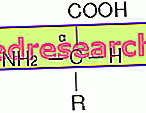Generality
Thickened endometrium is the expression used to define a marked increase in thickness of the innermost layer of the uterus.

The presence of a thickened endometrium may depend on various factors, including: the hormonal changes that characterize the menstrual cycle, obesity, diabetes mellitus, some complications of pregnancy, endometrial cancer, ovarian cancer, endometrial polyps, endometritis, estrogen-based hormone therapy that serves to counteract the effects of menopause etc.
Accurate diagnosis of thickened endometrium requires the use of tests such as transvaginal ultrasound of the uterus, pelvic examination, medical history, quantification of blood estrogen levels and endometrial biopsy.
The therapy adopted in case of thickened endometrium varies in relation to the triggering cause.
Brief review of the endometrium
Preceded by myometrium and perimeter, the endometrium (or endometrial tissue ) is the mucous membrane and the innermost cellular layer of the uterus .
The so-called epithelium of covering participates in the constitution of the endometrium, formed by a mono-layer of ciliated columnar cells (the most intimate portion), and the so-called lamina propria (or stroma), composed of highly vascularized loose connective tissue rich in muciparous glands (portion bordering on the myometrium).
Due to the effects of estrogen and progesterone hormones, secreted by the ovaries during the menstrual cycle, the endometrium is renewed regularly and this guarantees the constant presence of an environment suitable for the implantation of an embryo at the uterine level.
The renewal of the endometrium on a hormonal basis involves changes in the thickness and appearance of the aforementioned mucous membrane.
What is the thickened endometrium?
Thickened endometrium is the expression of jargon indicating a marked increase in thickness of the mucous membrane of the uterus.
In most cases, the presence of a thickened endometrium is nothing to worry about, as it is one of the physiological changes that characterize the female menstrual cycle.
Causes
The thickened endometrium may depend on different causes.
In most cases, it is a consequence of the hormonal changes that characterize the menstrual cycle in women (in this case, it is a physiological phenomenon exclusive to women of childbearing age); less frequently, it is due to:
- Chronic conditions, such as obesity, diabetes mellitus or polycystic ovary syndrome;
- Endometrial carcinoma (a malignant tumor of the uterus);
- Ovarian cancer;
- Endometrial hyperplasia;
- The presence of one or more endometrial polyps;
- The endometritis;
- Estrogen-based hormone replacement therapy to counteract the annoying consequences of menopause (NB: this is one of the most common causes of thickened endometrium in menopausal women);
- Taking tamoxifen, a chemotherapy drug for breast cancer treatment;
- Complications of a pregnancy (eg: ectopic pregnancy, lumps of blood in the uterus, placenta retention, molar pregnancy, etc.);
- First stages of a pregnancy (first 5 weeks).
According to a particular classification, the causes of non-physiological thickened endometrium can be distinguished in "causes linked to pregnancy" and "causes not related to pregnancy". | |
Ectopic pregnancy | Endometrial carcinoma |
Blood clots in the uterus | Ovarian cancer |
Placenta withholding | Endometrial polyps |
Molar pregnancy | Use of tamoxifen |
| Early stages of pregnancy | Use of synthetic estrogens as part of a hormone replacement therapy against the consequences of menopause |
| Endometrial hyperplasia | |
Diabetes mellitus | |
Obesity | |
Polycystic ovary syndrome | |
| Endometritis | |
When does the thickened endometrium more often have a tumor origin?
The thickened endometrium is a worrying and deserving condition for in-depth diagnostic investigations, because it could have a tumor origin, when it occurs in the post-menopausal period . The menopause, in fact, sanctions the conclusion of the menstrual cycle as well as of all those hormonal changes that induce the physiological thickening of the endometrium; therefore, an eventual thickened endometrium in an apparently healthy woman who has passed the menopause is something quite abnormal, which deserves the proper attention of the doctors.
What just stated does not exclude that even a woman of childbearing age can develop a thickened endometrium due to a tumor process.
This possibility is possible, but, compared to the case of menopausal women, it is decidedly more rare.
Risk factors
Medical-statistical studies show that it is easier to find a thickened endometrium in:
- Women over the age of 35;
- Women of white skin (in women of African race is more rare);
- Women who have not yet had children;
- Women who entered menopause at a later age than the average;
- Women who have had an early age;
- Obese women;
- Women with diabetes mellitus, some gallbladder disease, some thyroid disease or polycystic ovary syndrome;
- Women smokers;
- Women with a family history of endometrial cancer, ovarian cancer (or ovarian cancer) or colon cancer (or colon cancer).
Symptoms and complications
In women and in fertile age (pre-menopause), the presence of thickened endometrium may be associated with:
- Unusual lengthening of menstruation (ie menstruation lasts longer than usual);
- Abundant menstruation (ie blood losses are large);
- Intermenstrual bleeding (that is blood loss in the days of the menstrual cycle not "dedicated" to menstruation). This condition is also known as spotting .
Symptoms of the thickened endometrium after menopause
In women who have passed menopause, the thickened endometrium tends to cause vaginal bleeding ; however, in some circumstances, it is a completely asymptomatic condition, that is that it does not cause any symptoms.
After menopause, blood loss due to thickening of the endometrium is an important alarm bell, as it could probably be due to an endometrial carcinoma or ovarian cancer.



